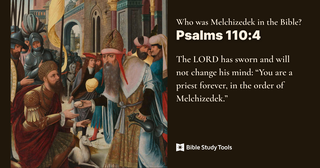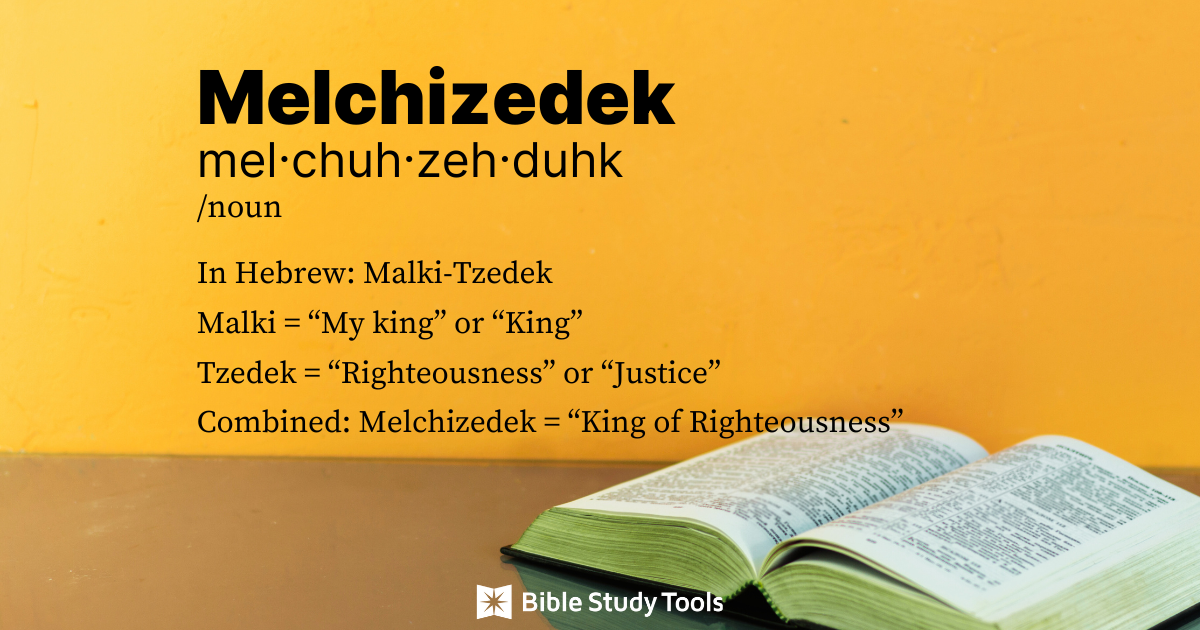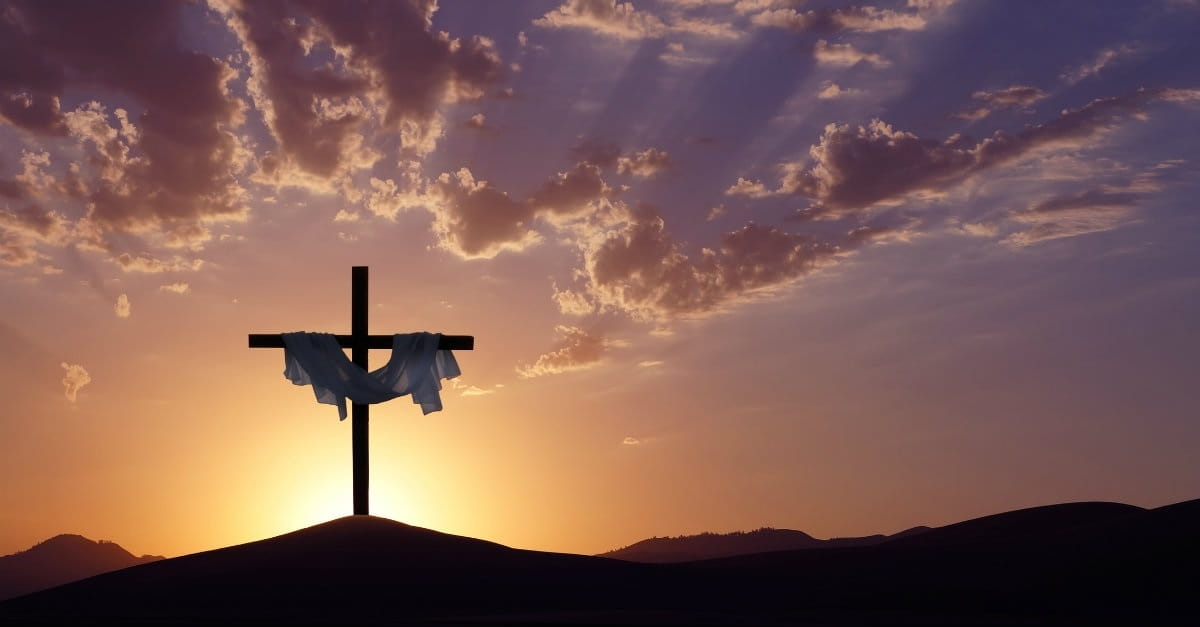Who Was Melchizedek in the Bible?
Share

Melchizedek stands as one of Scripture’s most enigmatic and theologically profound figures. Though his story appears in just a few verses in Genesis 14, his spiritual significance reverberates throughout the Old and New Testaments. As both king of Salem and priest of God Most High, Melchizedek emerges mysteriously, blesses Abraham, and receives a tithe, only to vanish from the narrative as quickly as he arrived.
Yet this seemingly minor character is far from insignificant. Psalm 110 and the Book of Hebrews revisit Melchizedek to reveal that he is a type of Christ, a divine foreshadowing of Jesus as the eternal priest-king whose role transcends the traditional Levitical priesthood.
In this article, we’ll explore:
- Who Melchizedek was in the Bible
- The meaning behind his name and title
- His appearance to Abraham after battle
- Why the New Testament elevates his priesthood above Aaron’s
- And how Melchizedek points us directly to Jesus Christ
Let’s dive into the mystery of Melchizedek in the Bible - a man with no beginning or end, and a message that still echoes in eternity.
Who Was Melchizedek?
Melchizedek, whose name means "king of righteousness," was both king of Salem (commonly believed to be early Jerusalem) and priest of God Most High (El Elyon). He appears suddenly after Abraham’s military victory over four kings and blesses him (Genesis 14:18–20). Abraham, in turn, gives Melchizedek a tithe (a tenth) of everything, showing Melchizedek's spiritual superiority.
This sudden and isolated mention leaves many questions. Who was this priest-king? Where did he come from? And why is he so significant in biblical theology?
The Significance of Melchizedek in the Bible
Though only briefly mentioned in Genesis, Melchizedek is revisited in Psalm 110:4, a messianic prophecy:
“You are a priest forever, in the order of Melchizedek.”
This same verse is quoted in Hebrews 5–7, where Melchizedek becomes central to explaining how Jesus’ priesthood differs from and surpasses the Levitical priesthood established through Aaron. Unlike Levitical priests, Melchizedek’s priesthood is eternal, without a recorded beginning or end (Hebrews 7:3). This theological point makes Melchizedek a foreshadowing of Christ.
Melchizedek as a 'Type' or 'Christophany?'
Some biblical scholars believe that Melchizedek was a "type of Christ" - a real historical figure whose role foreshadowed Jesus. Others suggest he may have been a Christophany - an Old Testament appearance of the pre-incarnate Christ.
Hebrews 7:3 says Melchizedek was:
"Without father or mother, without genealogy, without beginning of days or end of life, resembling the Son of God, he remains a priest forever."
Whether symbolic or literal, this description underscores Melchizedek’s uniqueness and his role as a divine signpost to the Savior.
What Does "Melchizedek" Mean?
Melchizedek, or in some translations Malki-Tzedek, literally means “my king.” Because the tzedek means “righteous” or “just,” many scholars have wrongly translated his name to mean just king or righteous king, writes John J. Parsons. Salem also derives from the term Shalom, which means peace. Perhaps his name had also meant King of Peace. Hebrews 7 confirms both of these names.
No wonder so many scholars have debated about the possible divine status of Melchizedek as the Son of God – because it seems odd that a mere human would ever have a name that means “king of righteousness,” as indicated in Hebrews 7.
In either case, Melchizedek’s name points to his kinghood.

The Priesthood of Melchizedek
We don’t get a lot of hints in Scripture about the specifics of what Melchizedek does in his role as a priestly king. He does break out the bread and wine sacrament and offers a blessing to Abraham in the name of God.
To answer this question, we’ll have to look to the role of priests in the Old Testament and know that the roles may slightly differ. After all, the priesthood doesn’t really come until the time of Aaron, Moses’ brother, in Exodus.
Priests in the Bible would serve as mediators between the people and God (we’ll discuss this more in the high priest section below). They administered sacrifices, especially during important holidays throughout the year, such as Passover, and were divided in twenty-four different sub-types (1 Chronicles 24:7-18). They ministered in both the temple and in the cities in which they were assigned. They also specifically came from the tribe of Levi.
We should make note that Melchizedek appears again in Psalm 110:4. This verse makes it clear that the order of the priesthood of Melchizedek has an eternal value.
Unlike the priesthood of Aaron which ran into many roadblocks and happened on and off, the priesthood of Melchizedek lasts forever.

Photo credit: ©Getty Images/mbolina
What Is a "High Priest"?
In the Bible, we do have a distinction between the priests and the high priest. The priests may range in their duties from taking care of the sacrificial lambs and maintaining the temple, but the high priest had the enormous task as serving as a mediator between the people and God once during the year.
On the Day of Atonement (Exodus 28), the high priest would enter the most sacred spot in the Temple (or Tabernacle, depending on the Old Testament timeline). He had a rope with bells attached to him, so those outside the holy of holies would know that God had not struck him dead from the sound. He would sprinkle the sacrifice for the people and himself on the holy seat (the ark of the covenant).
Scripture doesn’t offer any evidence that Melchizedek does this particular priestly duty. After all, the priesthood of Aaron existed long after his time. But we should make note that he does serve as a mediator between Abraham and God, as other priests do in Scripture.
And if Jesus does hail from the order of Melchizedek, we do know that a certain sacrifice Jesus did on earth (his crucifixion) tore the curtain to the holy of holies in half and atoned for our sins.
Why Is Jesus "of the Order of Melchizedek"?
As mentioned previously, in Hebrews 7, we see that Jesus hails from the priesthood of Melchizedek. In fact, a good portion of Hebrews 7 compares Jesus with Melchizedek.
Throughout the Old Testament, we do see certain archetypes to Jesus (Adam, David, etc.), but often they don’t receive half a chapter in the Bible dedicated to them. So why does this matter?
First, this shows that Jesus takes part in a greater priesthood than Aaron. The priesthood of the Levites was fraught with idolatry, abuse, and didn’t last forever. But the priesthood of Melchizedek has an eternal value – it lasts no matter what happens.
Second, the Bible highlights the importance of Jesus’ role as priest. We don’t often discuss this role as much in churches because most of us don’t have a familiarity with priests, as opposed to kings or even shepherds, other titles given to Jesus. But Jesus’ priestly role plays a huge part in the biblical narrative.
Like priests, Jesus mediates for us. He completed the ultimate sacrifice to atone for our sins.

Pointing to a Greater Priesthood
A great deal of debate has happened over a handful of verses about a man who lived thousands of years ago. The enigmatic figure of Melchizedek seems to last longer than Aaron’s priesthood, which spans entire books of the Bible.
We should care about this as Christians because no detail is too small in Scripture, and Melchizedek proves this. As an archetype of Jesus, he points us to a greater priesthood that will last eternally.
He also exemplifies kingly humility by declaring a blessing over Abraham and acknowledging God’s almighty power.
Like the Levitical priests and the high priest, Melchizedek acts as a mediator between the people and God. And we later see this same role played out in the New Testament in a different way through Jesus.
Jesus, who hails from the order of Melchizedek, plays the ultimate high priestly role and atones for our sins, allowing the people to come face to face with God, as opposed to via one man, once a year.
Photo credit: ©Getty Images/fizkes
Jesus, Our High Priest
Jesus is called “a priest forever in the order of Melchizedek” (Hebrews 6:20). This means His priesthood is:
Eternal: not subject to death or succession
Superior: greater than the Levitical line
Spiritual: rooted in righteousness and peace, not ritual
Melchizedek’s name and title, King of Righteousness and King of Peace, mirror Christ, who is both Righteous Judge (Revelation 19:11) and Prince of Peace (Isaiah 9:6).
Key Bible Verses About Melchizedek
Genesis 14:18–20 – Melchizedek meets Abraham, brings bread and wine, blesses him, and receives a tithe.
Psalm 110:4 – A messianic prophecy: “You are a priest forever, in the order of Melchizedek.”
Hebrews 5:6–10 – Christ is appointed as High Priest in the order of Melchizedek.
Hebrews 6:19–20 – Jesus enters the inner sanctuary as a forerunner, having become a High Priest forever in Melchizedek’s order.
Hebrews 7:1–10 – Melchizedek’s meeting with Abraham and the theological implications of his greatness.
Hebrews 7:11–28 – The superiority and permanence of Christ’s priesthood compared to the Levitical priesthood.
Hope Bolinger is an acquisitions editor at End Game Press, book editor for hire, and the author of almost 30 books. More than 1500 of her works have been featured in various publications. Check out her books at hopebolinger.com for clean books in most genres, great for adults and kids. Check out her editing profile at Reedsy.com to find out about hiring her for your next book project.